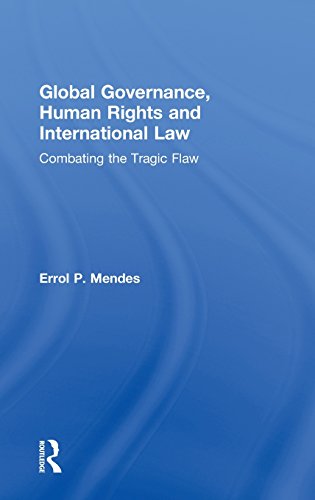

Most ebook files are in PDF format, so you can easily read them using various software such as Foxit Reader or directly on the Google Chrome browser.
Some ebook files are released by publishers in other formats such as .awz, .mobi, .epub, .fb2, etc. You may need to install specific software to read these formats on mobile/PC, such as Calibre.
Please read the tutorial at this link: https://ebookbell.com/faq
We offer FREE conversion to the popular formats you request; however, this may take some time. Therefore, right after payment, please email us, and we will try to provide the service as quickly as possible.
For some exceptional file formats or broken links (if any), please refrain from opening any disputes. Instead, email us first, and we will try to assist within a maximum of 6 hours.
EbookBell Team

4.0
16 reviewsThis book offers a stimulating introduction to the links between areas of global governance, human rights global economy and international law. By drawing on a range of diverse subject areas, Errol P. Mendes argues that the foundations of global governance, human rights and international law are undermined by a conflict or ‘tragic flaw’, where insistence on absolute conceptions of state sovereignty are pitted against universally accepted principles of justice and human rights resulting in destructive self-interest for both the state and the global community. The book explores how human rights and international law are applied in some of the critical institutions of global governance and in the operations of the global private sector, and how States, institutions and global civil society struggle to fight this ‘tragic flaw’.
The book is brought up to date by considering developments in the role of the IMF, the World Bank, bilateral investment treaties; the likely failure of the Doha round of WTO negotiations; the legacy of the 2008 financial crisis; and the role of the International Criminal Court and the evolving Responsibility to Protect doctrine in international peace and security crises in the Middle East, Central and West Africa among other regions of the world. With its intensely interdisciplinary approach, this book motivates new thinking in the realm of global governance and international law, and promotes the development of new strategies for negotiating between conflicting leadership and organisational values within global institutions.
The book will be of great interest and use to students and researchers of public international law, international relations and political science, business and human rights, global governance and international trade and economic law.